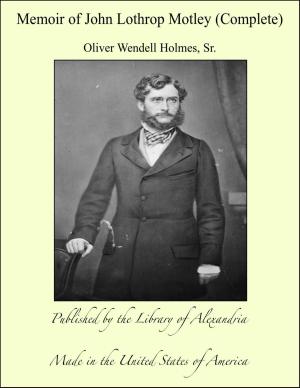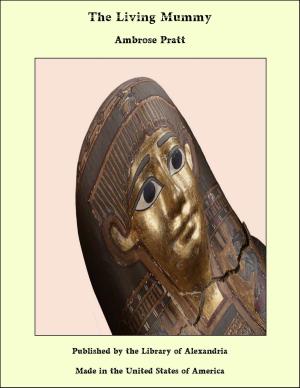Love's Final Victory: Ultimate Universal Salvation on the Basis of Scripture and Reason
Nonfiction, Religion & Spirituality, New Age, History, Fiction & Literature| Author: | Horatio (An Orthodox Minister) | ISBN: | 9781465609243 |
| Publisher: | Library of Alexandria | Publication: | March 8, 2015 |
| Imprint: | Language: | English |
| Author: | Horatio (An Orthodox Minister) |
| ISBN: | 9781465609243 |
| Publisher: | Library of Alexandria |
| Publication: | March 8, 2015 |
| Imprint: | |
| Language: | English |
The circumstances under which these pages came to be written are rather peculiar. I am in favor of church unity, and I had thought of writing something that would tend to bring the churches into closer harmony. I am persuaded that their unity of doctrine is greater than is usually supposed; I endeavored to make this apparent by citing a long list of doctrines on which the churches tacitly agree. But in all faithfulness I had to recognize a striking difference of opinion when I came to speak of the doctrine of future punishment. On this profound question I had to recognize that there are honest differences of opinion. These could not be summarily dismissed by a hasty yea or nay. There are three views that are entertained, which may be expressed thus: Extinction; Restoration; Endless Suffering. Not only do these different views prevail among different churches; they prevail also among individuals in all the churches. In fact, it would be hard to find a thoughtful church of any name in which each of these views is not represented. While there is this diversity of view, there ought surely to be toleration. It is a profound subject; I am very conscious of that; yet I think there may be ultimate harmony if we are only candid enough to lay aside all prejudice, and give the matter our serious and impartial consideration. And surely, it is worthy of that. In my view, there is a right conception of the matter, which if generally entertained would go far to lift a dark shadow from the heart of the world. For myself, I may say that I was brought up in an orthodox church that professes to believe in endless suffering. I had not, even at a mature age, examined that doctrine critically. In fact, I shrunk from examining it; I think most people do who professedly accept it. It is the doctrine of the church, and the easiest way is to assume that it is all right. If it was formulated by our learned and pious ancestors, the usual idea is that it's good enough for us. A thoughtful mind, however, could not but recognize that there is a serious difference on this question in different churches that are admitted to be evangelical. Not only that, but there is a difference between thoughtful men in the same church. Hence, I was led to adopt, and to state, my own views here. The arguments that I was thus compelled to use expanded far beyond my expectation. Then I recognized that a plea for unity along with the advocacy of a contested vital doctrine, do not hang well together. Moreover, the space that I felt compelled to give to this doctrinal defense, induced me to cut it loose from my plea for unity, and present the matter separately.
The circumstances under which these pages came to be written are rather peculiar. I am in favor of church unity, and I had thought of writing something that would tend to bring the churches into closer harmony. I am persuaded that their unity of doctrine is greater than is usually supposed; I endeavored to make this apparent by citing a long list of doctrines on which the churches tacitly agree. But in all faithfulness I had to recognize a striking difference of opinion when I came to speak of the doctrine of future punishment. On this profound question I had to recognize that there are honest differences of opinion. These could not be summarily dismissed by a hasty yea or nay. There are three views that are entertained, which may be expressed thus: Extinction; Restoration; Endless Suffering. Not only do these different views prevail among different churches; they prevail also among individuals in all the churches. In fact, it would be hard to find a thoughtful church of any name in which each of these views is not represented. While there is this diversity of view, there ought surely to be toleration. It is a profound subject; I am very conscious of that; yet I think there may be ultimate harmony if we are only candid enough to lay aside all prejudice, and give the matter our serious and impartial consideration. And surely, it is worthy of that. In my view, there is a right conception of the matter, which if generally entertained would go far to lift a dark shadow from the heart of the world. For myself, I may say that I was brought up in an orthodox church that professes to believe in endless suffering. I had not, even at a mature age, examined that doctrine critically. In fact, I shrunk from examining it; I think most people do who professedly accept it. It is the doctrine of the church, and the easiest way is to assume that it is all right. If it was formulated by our learned and pious ancestors, the usual idea is that it's good enough for us. A thoughtful mind, however, could not but recognize that there is a serious difference on this question in different churches that are admitted to be evangelical. Not only that, but there is a difference between thoughtful men in the same church. Hence, I was led to adopt, and to state, my own views here. The arguments that I was thus compelled to use expanded far beyond my expectation. Then I recognized that a plea for unity along with the advocacy of a contested vital doctrine, do not hang well together. Moreover, the space that I felt compelled to give to this doctrinal defense, induced me to cut it loose from my plea for unity, and present the matter separately.















